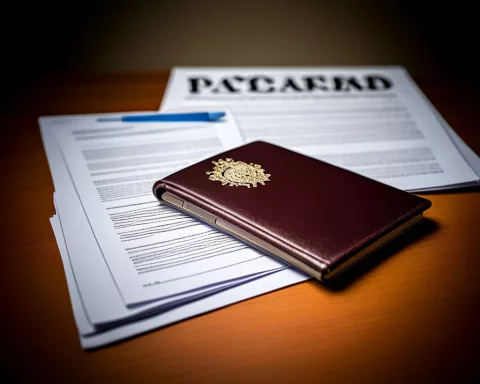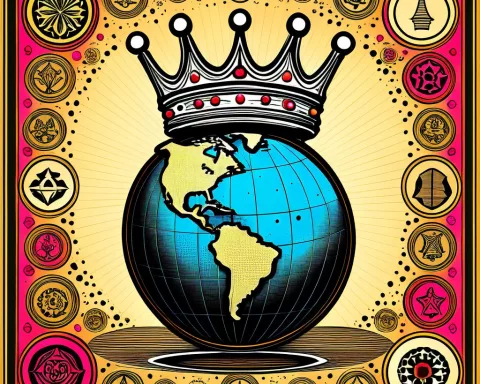Former Miss Universe winner Demi-Leigh Tebow’s accent transformation from Afrikaans to Americanized has sparked a debate about cultural assimilation. While some criticize her altered intonation, others see it as a sign of her adjusting to her new surroundings in Jacksonville after marrying former sports star Tim Tebow. Demi-Leigh’s journey serves as an example of the transformative process of cultural adaptation and personal identity in a globalized world. Her evolution also raises critical questions about the dynamics of cultural transition and individual identity.
Demi-Leigh Tebow’s Accent Transformation: A Sign of Cultural Adaptation?
Former Miss Universe 2017 winner and South African native Demi-Leigh Tebow’s accent transformation has sparked a debate about cultural assimilation. The noticeable change in her intonation from Afrikaans to Americanized has divided her followers, but it could also be a sign of her adjustment to her new surroundings. Demi-Leigh’s journey serves as an example of the fascinating, transformative process of cultural adaptation and personal identity in a globalized world.
Embracing American Life: Demi-Leigh Tebow’s Journey
Walking through the sunlit suburbs of Jacksonville, one may spot the vibrant and stylish Demi-Leigh Tebow, previously famous as Nel-Peters. The former Miss South Africa and Miss Universe 2017 winner has become the center of an intriguing cultural dialogue. Her recent digital footprint, accentuated by her American life, has inevitably ignited debates about cultural assimilation.
Demi-Leigh, a native of Sedgefield in the Western Cape, has been a known figure in Jacksonville since her 2020 marriage to former sports star Tim Tebow. Yet, it’s her latest online endeavors that have fueled animated public response. The center of this uproar is a video she posted on her Instagram and TikTok profiles, sharing an innovative version of a hot chocolate recipe, accompanied by a slightly modified accent.
The video commences with an upbeat greeting, “This is my little party trick,” followed by a detailed description of her ‘Demi Special,’ also known as Spicy Hot Chocolate. Her recipe is an exquisite mix of her preferred store-bought hot cocoa powder, a sprinkle of chili, salt, cinnamon, coconut sugar, and dried orange peels. A splash of milk or half & half lends it a creamy texture, making it an excellent choice for Christmas celebrations.
Accent Alterations and Cultural Adaptation
However, what truly captivated her followers was not the ‘Demi Special,’ but her accent transformation. The most conspicuous change was a shift from her native Afrikaans intonation to a more Americanized one. This divergence has split her audience into two camps – those who support her evolution and those who don’t. The latter group, taken aback by her modified accent, compared her to comedian Trevor Noah, who has retained his South African accent despite residing in the US.
Immersing oneself in a different culture often necessitates adaptation, and Demi-Leigh’s life exemplifies this. In a recent interaction with Life & Style, she openly discussed adjusting to American customs like celebrating the 4th of July and experiencing a snowy Christmas. She admitted her initial lack of understanding about the prominence of holiday cards, a practice not as prevalent in South Africa.
We must understand that integration into a new culture is a fascinating, transformative process, often marked by unexpected shifts. While Demi-Leigh’s accent modification might have startled her followers, it could just be a sign of her adjusting to her new surroundings. It presents an interesting case for sociolinguistics, illustrating how our linguistic styles can morph and evolve in response to our environment.
Individual Identity and Cultural Transition
The conversation revolving around Demi-Leigh brings forth critical questions about the intricate dynamics of cultural adaptation and personal identity. It serves as a reminder that the journey of cultural transition is a personal one, deserving respect and understanding.
Despite the criticism, Demi-Leigh continues to win hearts with her charisma, liveliness, and love for life. As we witness this new phase of her life, we stay engrossed in the transformation of the former beauty queen, showcasing the intriguing interplay of identity, adaptation, and a sense of belonging in a globalized world.
1. What sparked the debate about Demi-Leigh Tebow’s accent transformation?
Demi-Leigh Tebow’s accent transformation from Afrikaans to Americanized sparked a debate about cultural assimilation.
2. Why has her accent transformation divided her followers?
The noticeable change in her intonation has divided her followers, with some supporting her evolution while others are taken aback by her modified accent.
3. What does Demi-Leigh’s journey serve as an example of?
Demi-Leigh’s journey serves as an example of the transformative process of cultural adaptation and personal identity in a globalized world.
4. What American customs has Demi-Leigh adapted to?
Demi-Leigh has adapted to American customs like celebrating the 4th of July and experiencing a snowy Christmas.
5. What critical questions does the conversation about Demi-Leigh bring forth?
The conversation revolving around Demi-Leigh brings forth critical questions about the intricate dynamics of cultural adaptation and personal identity.
6. What is the interplay being showcased in Demi-Leigh’s transformation?
The transformation of Demi-Leigh showcases the intriguing interplay of identity, adaptation, and a sense of belonging in a globalized world.











